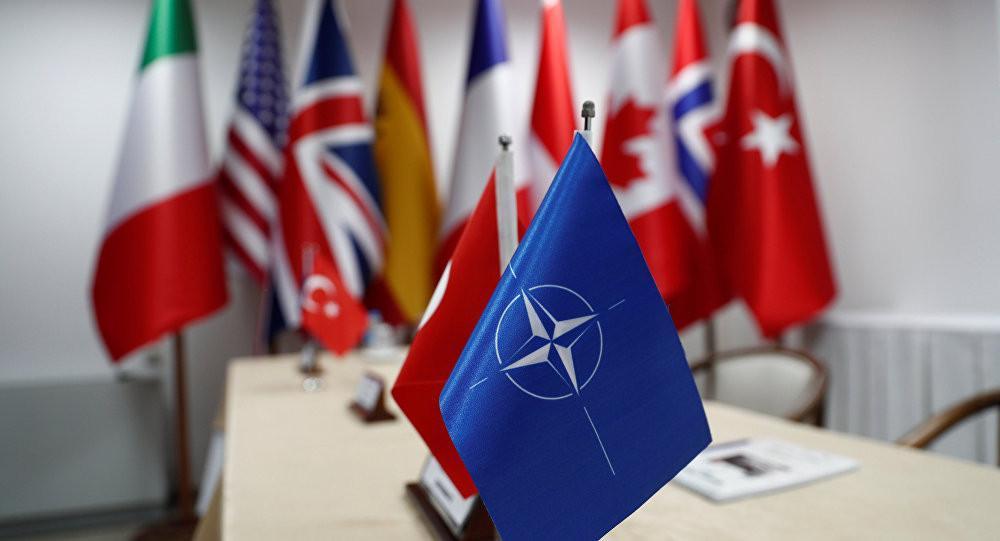
A Washington Post opinion by Ted Galen Carpenter dated July 19 has called for expulsion of Turkey from NATO following “Ankara’s purchase of Russian S-400 missiles, despite the vehement objections of the United States and other NATO members.”
The author also seemed worried about Turkey being “a dangerously unreliable NATO partner on security policy.”
It is interesting, but an “unreliable partner” is more or less the same description that most Turks have begun using for some of its traditional NATO allies, which have long been disregarding Turkey’s legitimate security concerns.
We can always argue whether the purchase of S-400 anti-aircraft defense missiles was the right decision or not under the circumstances. There are good arguments for and against both sides. We are, however, beyond the point of debate, and there is no longer much point to making a case on this. It is, however, time to think of a way to put this faltering alliance back on track again, rather than continuing to pull it apart. It is needed more than ever in an extremely complicated geography for both NATO and Turkey, surrounded on the sea and land by several insecurities and hostilities.
We already know that Turkey has been a powerful, well tested, trusted and equal member of NATO since 1952, as a southeastern bulwark against the Soviet expansion till the end of the Cold War. There is no need to mention what critical role Turkey has played in the Korean War. Most recently, Turkey has always held a key role in maintaining the geopolitical balance in the Mediterranean, the Black Sea, the Caspian Sea and the Near and Middle East, as well as in Afghanistan.
As of now, 50 U.S. thermo-nuclear bombs are stored at a Turkish air base, Incirlik. Turkey hosts LANDCOM, NATO’s land command, in the western coastal province of Izmir. Turkey is one of the key countries - along with Romania, Poland and Spain – involved in NATO’s missile shield project, hosting an AN/TPY-2 radar in eastern Malatya province, forming NATO’s deterrence and defense structure.
Furthermore, NATO Rapid Deployable Corps - one of nine NATO land forces headquarters with a high readiness level - is stationed in Istanbul. Ankara is going to take the command of Very High Readiness Joint Task Force in 2021 as a “spearhead force” within the NATO Response Forces against risks and threats that might arise in Russia, Middle East and North Africa.
Most NATO member countries, however, have so far not been very assuring in response to Turkey’s need for greater security and support. If things continue the way they are, you might be surprised to learn that the idea of pulling out from NATO might find a fertile ground among certain Turks who are increasingly distrustful of their western allies’ support in this conflict-ridden region.
Does this mutual estrangement serve the vital interests of the NATO alliance or Turkey? For anyone who believes in the viability of our alliance, the answer must be a categorical no. Such an eventuality and your confused argument definitely will serve that of Russia, which delights at seeing how NATO could be disrupted and divided.
I think President Donald Trump has amply provided the answer to Ted Galen Carpenter’s comment about the S-400 controversy: “The current situation with Turkey over F-35 jets is not fair, as the country wanted to buy U.S. Patriot missiles before, but Washington had refused at the time.” Also, NATO Secretary-General Jens Stoltenberg very wisely underlined recently that “Turkey as a NATO member is much more than S-400. Turkey has not asked the S-400s to be integrated into the NATO air defense and missile system.”
Any organization is viable so long as it serves the purpose for which it has been created and its members are satisfied with its operations and actions. Rightly or wrongly, there is a perception among Turks that some NATO allies either harbor or support some anti-Turkish moves and groups displaying total insensitivity towards Turkish concerns.
For example, Fettullah Gulen is still in the U.S. state of Pennsylvania after masterminding a coup attempt on July 15, 2016. Of late, the Washington Post has opened its opinion pages to the leader of an internationally recognized terrorist organization. Portraying one of the bloodiest terrorist groups in modern history, responsible for atrocities and killings, as a political movement and its leaders as legitimate interlocutors is not only unacceptable, but also sets a dangerous precedent. “My” terrorist cannot be “your” freedom fighter in such a trust-based strategic alliance.
Then, comes the suspension of Turkey from the F-35 project to which Ankara has already contributed significantly in financial terms and as a manufacturer of certain parts. Russia is now offering Turkey the Sukhoi Su-35 “Flanker-E” fighter to make up for the loss of the F-35, in addition to the S-400!
It is an open secret that Turkey’s democracy credentials have deteriorated over the past few years. This makes us all worried. The policy response should not be to expel a powerful ally, but the alliance would do well to use every influence and instrument they have, through positive engagement, to help Turkey improve its democratic performance.
We believe this should be a time for rationality and solidarity, rather than hostility and expulsion. Yes, there are problems, which we must face and address, but the solution should be to talk more constructively towards a common ground.
Let’s not forget that there are always two sides of a story and that secure Turkey means a secure NATO.
Defne Sadıklar Arslan, is the Executive Director of the Atlantic Council. Mehmet Öğütçü, is the chairman of the Global Resources Partnership.